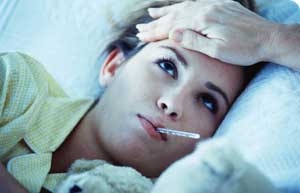What is a fever and how to address fevers?

First of all we need to know that when the temperature of our body rises to more than 98.4 F, a person is said to be suffering from fever. There are different fever types and it may be difficult to categorize the fever type. With so many causes of fever, it is not easy to pin point a specific cause for fever. There could be different fever types like typhoid fever, dengue fever, hay fever. Let us also understand the side effects of fever.
Fever is generally associated with a high temperature, body ache, chills in the body and weakness. However, not all fevers are the same. Unless and until you visit the doctor, you will not be able to pinpoint the type of fever. The doctor will firstly diagnose the patient and based on his diagnosis, it will be easy to classify the fever types. Some of the visible symptoms include not feeling good, shivering, perspiration, feeling down, soreness in the body, pain in the body, appetite loss and thirsty feeling. These are the predominant symptoms but these may not necessarily be prevalent for all types of fever.
Let us now understand the various types of fever. It could be fever associated with mumps, diphtheria, sandfly fever, rheumatic fever, malarial fever, typhoid fever. The malarial and typhoid fever can easily be identified when the patient undertaken specific blood tests. Meningitis fever can be quite dangerous and so it is important that you do not ignore any type of fever. Home remedies are fine but if the fever persists for more than 24 hours, it is advised that you seek medical help. Generally, the doctor or your family physician will put you on a dose of antibiotics and paracetamol tablets depending on the severity of fever and your body temperature.
Hay fever is generally associated with changes in weather and seasonal changes. At times, dust mites and cat hair also cause hay fever and also allergic fever. Patients may suffer from red and watery eyes, wheezing and sneezing. Airborne particles are the main carriers of fever. It is important to take the right medication, keep drinking lots of water and eat healthy even when you have fever or else the body gets tired. It is important to refrain from eating too oily or pungent food as it will not help the body recover. Go slow and eat light so that digestion is easy even when you are having fever.
The symptoms of fever are basically tired and fatigue and so one has to take adequate rest. Keep recording the temperature so that you are able to keep the doctor posted about the same. If the fever does not subside even after 3-4 days, the doctors generally will advise a blood test to identify the type of fever. The dengue fever can be quite dangerous and it is caused by mosquitoes. The patient has to take adequate rest, take adequate medication and eat well so as to improve their immunity levels.
